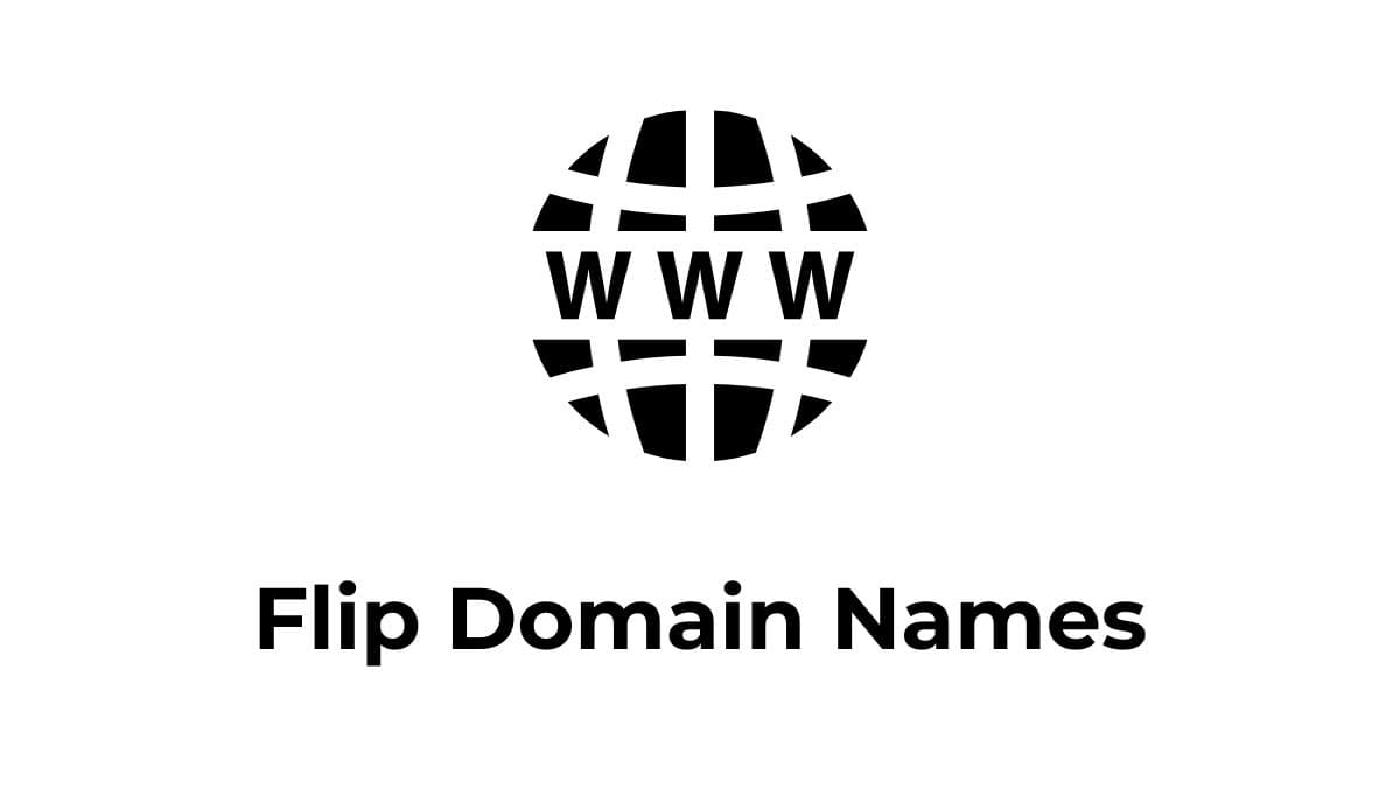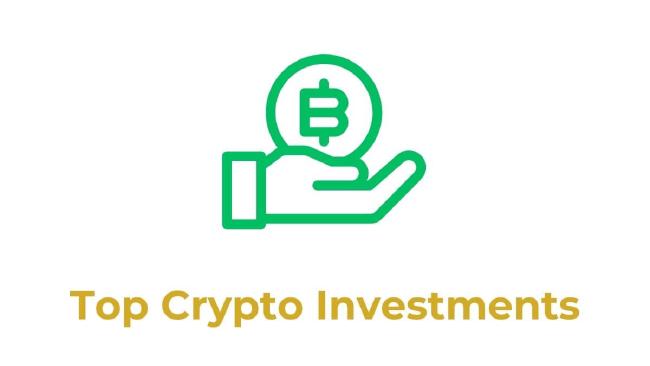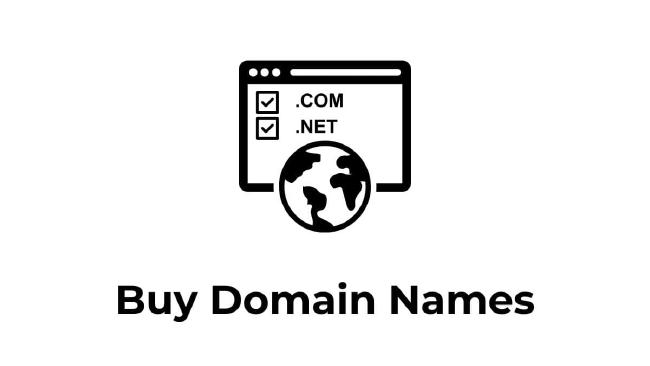Unbelievable Domain Flipping Strategies
Learn the ins and outs of domain flipping, from finding profitable domains and valuing them to advanced strategies and tools. This comprehensive guide covers everything you need to know to start and succeed in the world of domain flipping.
What is a Domain Name or Digital Real-Estate?
Before we get started, lets identify the definition of domain names. In short, domain names are characters that conveniently direct people to a website. The domain flipping process involves purchasing a domain name at a lower price and later selling it at a higher price to interested parties. Digital real estate refers to virtual properties or online assets that hold value in the digital realm. Unlike physical real estate, which involves land, buildings, or physical structures, digital real estates encompasses various intangible assets existing in the online space.
Why Domain Flipping is Profitable
The internet is an ever-expanding landscape, with millions of new websites being created every year. Premium domain names can become highly valuable commodities. According to Verisign, there were 370.7 million domain name registrations across all top-level domains at the end of 2021. This high demand can translate into substantial profits for domain flippers.
Domain Flipping Strategies
Build a Domain Portfolio;
- Diversify Extensions: Don't just focus on .com domains. Include other popular extensions like .net, .org, and country-specific ones like .co.uk.
- Vary the Niche: Invest in domains across different niches to spread your risk.
- Monitor Trends: Keep an eye on emerging trends and technologies to identify new opportunities.
Invest in Expired Domains;
Expired domains can be a goldmine. These are domains that were previously registered but not renewed. They often come with existing traffic and backlinks, adding to their value. Tools like ExpiredDomains.net can help you find valuable expired domains.
Monetize Unsold Domains;
- Parking: Use services like Sedo or GoDaddy to park your domain and earn revenue from ads displayed on the page.
- Affiliate Marketing: Set up a simple website with affiliate links to earn commissions.
- Leasing: Lease your domain to a business for a recurring fee.
Types of Domain Names
There are many types of domains, i.e.,
- Premium generic domain names consist of generic and highly sought-after keywords.
- Single-word domains are memorable words as domain names, especially in .com extensions,
- Industry-specific domains are related to specific industries or niches.
- Geographical domain names are associated with specific locations or regions, especially in valuable locations or popular cities.
- Brandable domain names can be used effectively for marketing and branding purposes.
- Short domains are a few characters or a concise combination of letters, numbers, or words.
- Memorable phrases or combinations comprise catchy, memorable phrases or word combinations tend to attract high prices.
- Keyword-rich domain names contain strong keywords that are highly relevant in certain industries.
- Historical or aged domains come with a history, they've been registered for a long time.
- Descriptive domain names precisely describe a product, service, or industry and are easily understandable and memorable.
Each of these alternatives offers unique opportunities to earn money online, catering to different skills and interests.
How to Make Money Flip Domain Names
Domain flipping is one of the most profitable investments on the Web. When executed properly. Unlike stocks and bonds flipping domains enable individuals to earn reasonable profits from a small investment without much effort.
Over the years domain flippers have quickly earned a fortune online. In 2007 VacationRentals.com sold for $35 million. Three years later CarInsurance.com sold for $49.7 million. However, in 2019 Voice.com sold for $30 million. Hence, selling digital real-estate is one of the best passive income ideas ! With strategic investment decisions and effective marketing strategies, you can capitalize on the booming online marketplace to generate substantial income streams. Below we will explore how to profit from digital real estate in 3 steps:
1. Find Profitable Domain Names
The first step in domain flipping is identifying domain names that have the potential to sell at a higher price. Keyword research is crucial in this process. Using tools like Google Keyword Planner can help you find popular search terms, which are often valuable. Additionally, focusing on short and memorable names can increase the likelihood of a sale, as they are easier for users to remember. Another strategy is to consider brandable names, which businesses can easily use for their branding purposes. Lastly, targeting niche markets can be advantageous, especially if you have knowledge in specific industries or see potential growth areas.a
2. Evaluate Domain Names
Once you've identified potential domains, evaluating their worth is the next step. Several factors come into play here. Search volume is important; domains with high search volume keywords are likely to attract more buyers. The age of a domain can also influence its value, as older domains often have established credibility and SEO advantages. The extension of the domain matters too; while .com domains are typically the most valuable, other extensions like .net and .org can also be profitable. Researching past sales of similar domains can provide a benchmark for pricing.
3. Buy Your Domain Name
Ready to buy your domain name ? There are several hosting companies on the internet offering inexpensive domain names. You can purchase a reasonable domain name anywhere between $8 – $200. Looking to register your domain name? Here are three top platforms you should consider:
- Bluehost : Known for its reliable web hosting services, also offers domain registration with straightforward pricing and excellent customer support.
- GoDaddy: One of the largest domain registrars globally, GoDaddy offers a wide range of services including domain registration, web hosting, and website building tools.
- Namecheap : Living up to its name, Namecheap offers budget-friendly domain registration services without compromising on quality or customer service.
- HostGator: Primarily known for its web hosting services HostGator also offers domain registration with competitive pricing and reliable customer support.
4. Set the Right Price
Pricing a domain correctly is crucial. An overpriced domain might deter potential buyers, while underpricing could result in missed profit opportunities. Using domain appraisal tools such as Estibot and GoDaddy's domain appraisal tool can help you estimate your domain's worth accurately.
5. Market Your Domain
Effective marketing strategies are essential for selling your domain. Listing your domains on popular marketplaces like Sedo, Flippa , and Afternic can increase visibility. Creating a simple landing page with a contact form can also attract potential buyers directly. Additionally, promoting your domains on social media platforms like Twitter and LinkedIn can help reach a wider audience. Email marketing, with targeted campaigns to potential buyers, can further boost your chances of making a sale. Keep in mind its you can attract more clients with a landing page. Therefore, you should consider launching a personal blog or website.
6. Negotiate the Sale
Negotiating the sale of a domain can be challenging. Knowing your bottom line is essential to avoid underselling. Highlighting the domain's strengths, such as keyword relevance, brandability, and traffic potential, can help justify your asking price. Patience is key in negotiations; sometimes, waiting can lead to better offers. For higher-value domains, using an escrow service like Escrow.com can protect both parties and ensure a smooth transaction.
7. Sell Your Domain Name
The last step involves selling the domain name. It’s the most difficult, but most crucial phrase throughout the entire process. If you want to make a profit, then you need to find potential buyers who will buy the domain at a higher price. Therefore, you must strategize.
One strategy that requires less effort is the buy-hold strategy. This method involves holding the domain, waiting for buyers to contact you. You can also create a landing page for your domain as a way of advertising to make it more appealing to potential customers.
Or you can list your domain at an auction. This method is, of course, the most popular. In addition, it’s the fastest way to sell a domain. Auctioned domain names are usually cheaper because of the stiff competition. If a domain name stands high chances to sell at a higher price in the future, then it is advisable to buy them.
Business owners should avoid hiccups at all costs. It’s advised to use a professional service for the transfer of ownership to assure a smooth process. That way, the buyer gets what they want and you get what you want.
Tools for Domain Flippers
Successful domain flipping requires the right tools. Here are some essential ones:
- Domain Valuation Tools: Estibot, GoDaddy Appraisal
- Keyword Research Tools: Google Keyword Planner , SEMrush
- Marketplaces: Sedo, Flippa, Afternic
- Auction Sites: GoDaddy Auctions, NameJet
- SEO Tools: Ahrefs, Moz
Conclusion
Domain flipping can be a rewarding endeavor with the right knowledge and tools. From finding and valuing domains to advanced strategies and avoiding common mistakes, this guide provides a comprehensive roadmap to success. Whether you're a beginner or an experienced investor, there's always something new to learn in the dynamic world of domain flipping. So, start exploring and flipping those domains for profit!
Related Posts
Highest Paid Bloggers
In the dynamic world of blogging, a select few have risen to the top, turning their passion for writing into lucrative careers. This article delves into the lives and earnings of the highest-paid bloggers, explores the various monetization methods they employ, and provides insights into how they transformed their blogs into successful businesses.
Read more39 Ways to Earn Money in 60 Minutes
In today's digital age, there are numerous ways to earn money online quickly. You can earn money selling stock photos, renting out your driveway, participating in focus groups and more. Each method is designed to be practical and easy to implement, making it perfect for anyone looking to boost their income in a short amount of time.
Read moreHow to Buy Domain Names
In the digital era, selecting the right platform for purchasing domain names is a critical step in building a strong online presence. The decision impacts not only the ease of managing your domain but also the level of support and features you receive.
Read more


